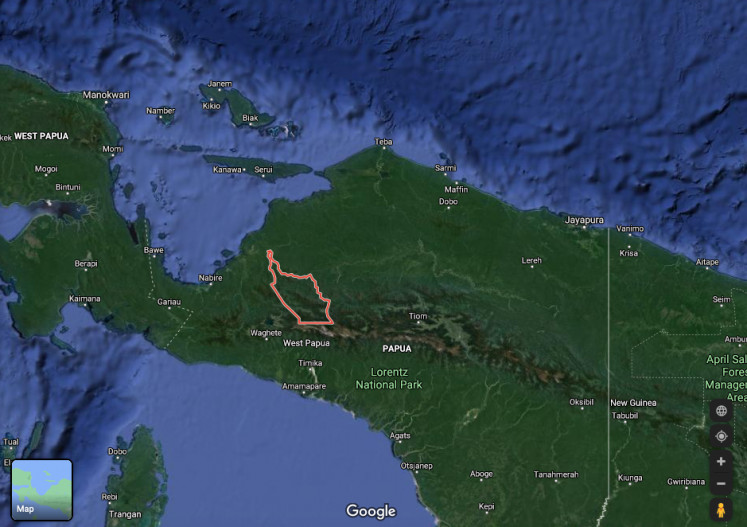ASEAN’s tax policies must change to defeat poverty, COVID-19
ASEAN needs a regional tax policy mechanism and tax incentive rulebook to stop harmful competition and come together for the collective wellbeing of the community.
Change text size
Gift Premium Articles
to Anyone

I
n 2018, long before COVID-19, 73.57 million (11 percent) out of 653.9 million people in ASEAN were living in abject poverty. Millions more are at the cusp of falling into poverty, with economies struggling to resume and full recovery a long way away.
The pandemic has exposed grossly under-resourced public health and social protection systems, with more people needing health care to save lives and social protection to get them through the day while their work and incomes are at a halt. Getting by has been tougher than ever for daily wageworkers, smallholder farmers, women workers in precarious jobs and many others.
The nations in the region need more resources than ever to ramp up and maintain public goods like universal health care and social protection. Even before the pandemic, however, many ASEAN nations have been struggling to raise sufficient revenue for essential public services that are proven to promote the wellbeing of millions.
That seven of the ASEAN member states have suffered persistent budget deficits for long periods highlights the region’s fiscal woes. Malaysia, Myanmar and Laos have been in the red throughout the past two decades, while Vietnam, Cambodia, Indonesia and the Philippines have only managed to avoid a deficit for four years in 2000-2020 at the most.
In 2018, six out of the 10 ASEAN countries had budget deficits, with some also burdened by high public debt. On average, the ASEAN region saw a budget deficit of 1.5 percent of gross domestic product (GDP), with many national deficits escalating unsustainably. All ASEAN countries will likely face budget deficits in 2020 at an average 4.2 percent of GDP.
Deficits, and consequently public debt, will increase further because of the additional resources mobilized to overcome the pandemic. Expected spending on COVID-19 response is enormous: Singapore and Thailand will spend respectively 13 percent and 9 percent of GDP on fiscal stimulus, while the Philippines, Indonesia and Vietnam will put in about 3 percent of GDP. At the same time, sharply falling tax revenues due to crippled economic activity will further erode the bottom lines.
ASEAN nations have been unable to achieve the desired domestic revenue mobilization targets, despite sustained economic growth and large foreign direct investment during the past two decades. For instance, overly generous corporate tax incentives offered without cost-benefit analysis have eroded the domestic revenue base. Due to such redundant and harmful tax incentives, essential revenues that could go into improving the lives of millions have been drained away.
These tax practices have helped big corporations and the wealthy to prosper at the expense of the people. The results can be seen by the high inequality in and between the region’s nations. Despite ASEAN’s commitments to progressing socially, culturally and economically in the spirit of equality and partnership, its members have often been embroiled in mutually harmful competition.
ASEAN needs to come together politically to stop this race to the bottom and to promote the collective wellbeing of the community. This is essential to ensuring sustainable progress and overcoming interrelated challenges like the climate crisis, widening inequality and recovering from the COVID-19 crisis. In our downloadable report, Towards Sustainable Tax Policies in the ASEAN Region, Oxfam and our partners present three recommendations that will help the region increase national revenues.
First, ASEAN needs a whitelist and blacklist of tax incentives, clarifying the incentives that benefit equitable economic growth and that hinder such.
All harmful tax incentives must be blacklisted, and a plan with a deadline must be put in place to phase them out. The blacklist may include profit-based tax incentives that offer a low tax rate, like tax holidays, large tax exemptions, loss carrybacks and preferential rates.
In parallel, ASEAN should agree on a whitelist of permitted tax incentives. The whitelist should include tax incentives for investment that focus on contributions to the community. These incentives should be monitored for their effectiveness, and abuses like super deductions or super tax credits should be avoided.
ASEAN needs a mechanism in place to monitor tax policy developments and to maintain these two lists. The mechanism should be transparent and accountable, and comprise both political representatives and technical experts from administrations, civil society and academia.
Secondly, ASEAN needs to agree on a common minimum tax standard to stop its members’race to the bottom. The region should agree on a specific approach as international policy developments toward a worldwide minimum tax rate continue.
ASEAN nations must agree that the corporate tax incentives offered should not go below a minimum effective corporate income tax rate, which could range from 12.5 percent to 20 percent. This will protect members’domestic tax revenues and stop the beggar-thy-neighbor policy orientation.
Finally, ASEAN needs to agree on the rules for good governance of tax incentives. A good tax governance rulebook is needed, and all tax incentives should have clear criteria under a legal basis defined in the corporate tax code. No arbitrary exemptions must be given to companies.
Any tax incentive should have, by law, a clear time frame and end date. A cost-benefit analysis should be carried out on potential tax incentive provisions as a prerequisite to their approval.
All ASEAN member states should transparently publish an annual tax expenditure report, along with annual budget documents. Once tax incentives have been granted, tax authorities must monitor their impacts and carry out the corresponding cost-benefit analysis for transparency and good governance.
Acting on these recommendations will help ASEAN, as a cohesive and responsive community, to raise revenue for public goods to make a difference in the lives of millions struggling to overcome poverty and the pandemic. Moving beyond, these policy changes will allow the region to achieve sustainable and humane progress, both economically and socially.
***
The writer is regional director of Oxfam in Asia.









